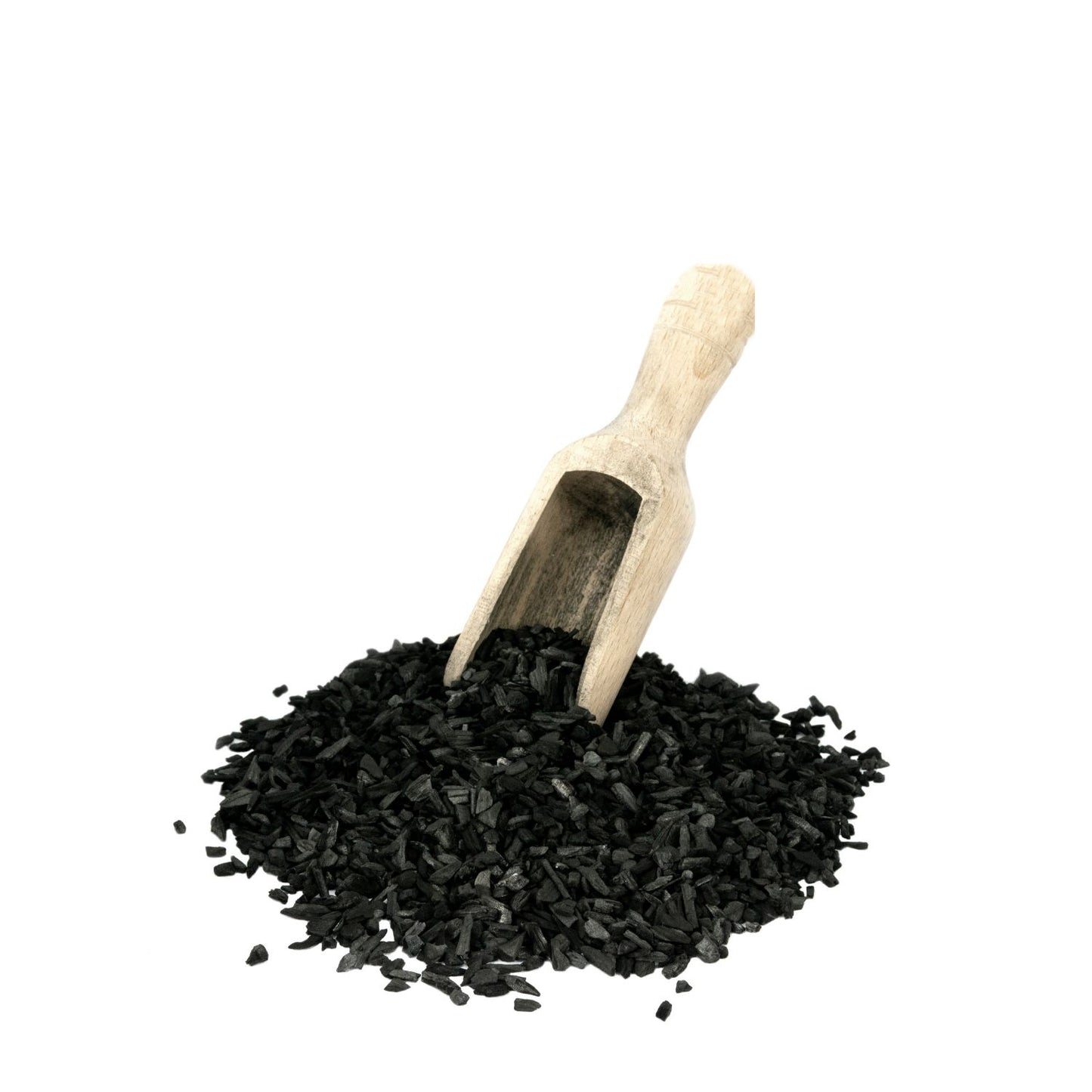Suitable for all crops: horticultural, herbaceous, arboreal, shrubby.
For integrated and conventional agriculture, industrial and hobby.
BioDea Biochar, obtained from an innovative
pyrogasification technology, is the product of the
partial combustion of biomass inside the
reactor and is mechanically collected from the bottom
of the same to be subsequently divided into
different grain sizes. The control of times and
temperatures, during the reaction ensures the values
optimal in low ash content and high content
of organic carbon. The extraction, in depression,
gases from the reactor head, which never enter
in contact with the Biochar, ensures the absence of
contaminants released during combustion.
The carbon content in Biochar has a very high
stability and remains fixed in the ground for hundreds of
years, sequestering 3 tons of carbon dioxide
for every ton produced. It is currently one of the
more effective means available to fight against
Climate change. BioDea Biochar is in the classroom
I, qualitatively better, pursuant to Legislative Decree
75/2010, due to its low ash content and high
carbon content. Biochar is a soil improver
in the soil capable of improving the structure
soil chemistry, physics and microbiology
creating a stable and porous structure, thanks
which it is possible to reduce the frequency and
amount of water needed for irrigation; furthermore,
its high specific surface area, similar to clay,
promotes the absorption and ion exchange of
nutrients. Biochar improves soil:
• promotes aeration, drainage and resistance to
compaction;
• provides an optimal environment for proliferation
of communities of microorganisms, revitalizing and
increasing the transformation of residues into humus
organic;
• reduces the action of pollutants thanks to its
high adsorbent and filtering capacity.
Biochar helps the plant:
• increases the ion exchange capacity between the soil and
the roots, increasing the availability and
the assimilation of nutrients;
• increases water content by more than 35%
available (AWC) reducing irrigation needs and
water stress.
Biochar production is capable of sequestering 3 tons of CO₂ for every ton
produced, fixing it as stable carbon for hundreds of years.
Without screening, it contains variable percentages of all grain sizes
The formulation with the addition of mycorrhizae and nitrogen-fixing bacteria has been observed to have a soil-improving effect for approximately 20 years.

